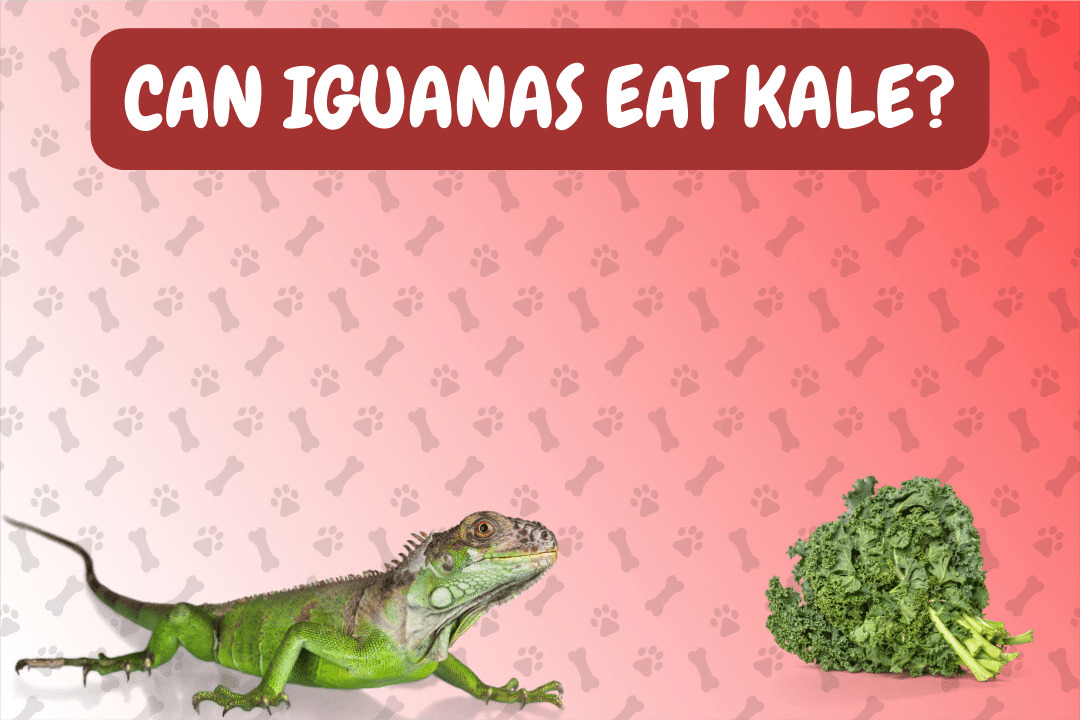No, iguanas can’t eat kale because it contains high levels of oxalates, which can be harmful to their health.
Table of Contents
Introduction
Iguanas are fascinating reptiles known for their herbivorous diet. As responsible iguana owners, it’s vital to understand what foods are safe and beneficial for your scaly friend. Kale, a popular leafy green, is often considered a healthy option for humans, but can it be included in an iguana’s diet? In this article, we’ll answer.on question can iguanas eat kale and the potential risks associated with it.
Nutritional Value
Kale is indeed a nutritious vegetable for humans, loaded with vitamins and minerals. However, for iguanas, it’s not an ideal choice. Kale contains high levels of oxalates, compounds that can bind to calcium, potentially leading to calcium deficiency in iguanas. Calcium is crucial for their bone health and overall well-being, and a diet high in oxalates can be detrimental.
Potential Risks
Feeding kale to iguanas can pose several risks. The oxalates in kale can interfere with calcium absorption, leading to metabolic bone disease, a severe condition that affects their bones and overall health. Additionally, excessive oxalates can lead to kidney issues in iguanas, further emphasizing the importance of avoiding this green for their diet.
How to Serve Safely
To ensure the safety of your iguana, it’s best to exclude kale from their diet. Instead, focus on providing a variety of other leafy greens and vegetables with lower oxalate content. These alternatives will supply the necessary nutrients without the risks associated with kale.
Serving Suggestions
Opt for iguana-friendly leafy greens like collard greens, mustard greens, and turnip greens. These greens have a lower oxalate content and can be included in your iguana’s diet. Rotate through a variety of greens to provide a balanced and enjoyable diet for your pet.
Special Considerations
Every iguana is unique, and some may have specific dietary requirements or allergies. It’s crucial to monitor your iguana’s health and consult with a reptile veterinarian if you have concerns about their diet. They can offer guidance tailored to your iguana’s individual needs.
Expert Opinion
Reptile experts and veterinarians strongly advise against feeding kale to iguanas due to its high oxalate content. Calcium deficiency and kidney issues can have severe consequences for iguana health. It’s always best to prioritize their well-being by offering safe and suitable foods.
Conclusion
In conclusion, iguanas can’t eat kale due to its high oxalate content, which can lead to calcium deficiency and kidney issues. To promote the health and well-being of your iguana, choose leafy greens with lower oxalate levels, ensuring a balanced and safe diet for your scaly companion.
FAQ
Q1: Can I feed kale to baby iguanas in small amounts?
A1: It’s best to avoid kale for baby iguanas as well. Their developing bodies are sensitive to dietary imbalances, making it crucial to provide them with low-oxalate greens.
Q2: Are there other vegetables that iguanas should avoid?
A2: Yes, some vegetables high in oxalates, like spinach and Swiss chard, should be avoided. Stick to greens with lower oxalate content for your iguana’s diet.
Q3: Can iguanas eat fruits in moderation?
A3: Some fruits can be included in an iguana’s diet in moderation, but they should primarily consume leafy greens and vegetables. Fruits should be considered a treat.
Q4: Can a calcium supplement help if I want to feed kale occasionally?
A4: While calcium supplements can help, it’s best to offer a variety of low-oxalate greens and vegetables as the primary food source. Supplements should be used cautiously and under the guidance of a reptile veterinarian.
Q5: How often should I change my iguana’s diet with different greens?
A5: It’s a good practice to rotate through a variety of greens every few days to ensure a balanced diet. This helps prevent dietary imbalances and ensures your iguana receives a range of nutrients.
Q6: Can iguanas eat kale if it’s cooked or steamed?
A6: Cooking or steaming kale does not significantly reduce its oxalate content. It’s best to avoid kale altogether and opt for other greens suitable for iguanas.
Q7: Are there any health signs that indicate an issue related to a high-oxalate diet?
A7: Signs of a high-oxalate diet issue can include lethargy, difficulty moving, bone deformities, and kidney problems. Regular health checkups with a reptile veterinarian are essential to catch and address such issues.
Q8: Can you recommend a sample diet for an adult iguana?
A8: A sample diet for an adult iguana can include collard greens, mustard greens, turnip greens, and a variety of other low-oxalate leafy greens and vegetables. Consult with a reptile veterinarian for a specific diet plan tailored to your iguana’s needs.
Q9: Is there any way to reverse the effects of a high-oxalate diet in iguanas?
A9: Reversing the effects of a high-oxalate diet can be challenging. Prevention is key, and it’s crucial to ensure a balanced, low-oxalate diet from the beginning to avoid health issues.
Q10: How can I ensure my iguana’s diet is balanced and healthy?
A10: To ensure a balanced and healthy diet for your iguana, consult with a reptile veterinarian or herpetologist. They can provide guidance on appropriate greens, vegetables, and supplements, if necessary, to meet your iguana’s specific needs.
For more Exotic Pets food informations, keep reading our blog.
Hello! I’m Max Walley, a pet enthusiast who knows a lot about what our animal buddies can munch on and what’s a no-no. With ‘canpeteat.it,’ I’m here to help pet owners make smart food choices. Come with me as we dive into the world of pet nutrition, discovering what keeps our furry pals joyful and in tip-top shape. Let’s explore this adventure together!


